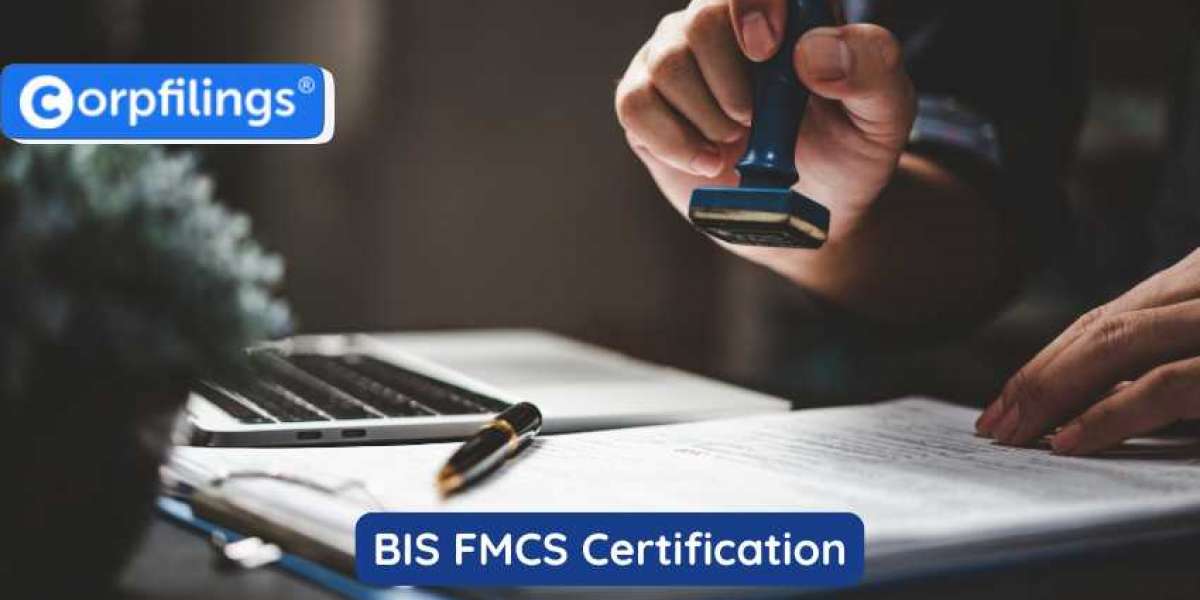When entering the Indian market, ensuring compliance with Indian standards is crucial for foreign manufacturers. The Bureau of Indian Standards (BIS) has introduced the Foreign Manufacturers Certification Scheme (FMCS) to make this process smoother and more transparent. This certification allows foreign companies to use the BIS Standard Mark (ISI Mark) on their products, assuring Indian consumers of safety, quality, and reliability.
This blog explores everything you need to know about BIS FMCS Certification—its meaning, process, benefits, and the documents required to obtain it.
What is BIS FMCS Certification?
BIS FMCS Certification is a mandatory compliance scheme governed by the Bureau of Indian Standards Act, 2016. It allows foreign manufacturers to certify their products according to Indian standards and use the ISI mark. This certification ensures that imported products meet the same level of safety and quality as those manufactured in India.
The FMCS covers both mandatory and voluntary products, ranging from electrical appliances and building materials to household items and industrial goods. By obtaining BIS FMCS Certification, a manufacturer demonstrates commitment to product quality and consumer safety, strengthening their market presence in India.
Why BIS FMCS Certification is Important
For foreign companies, India represents one of the largest consumer markets in the world. However, regulatory compliance is a key barrier to entry. The BIS FMCS Certification acts as a gateway that helps manufacturers overcome these challenges.
Here’s why it matters:
Legal compliance: Products under mandatory BIS certification cannot be sold in India without approval.
Consumer trust: The ISI mark on a product reflects safety, quality, and reliability, influencing purchasing decisions.
Market access: Certified products can be freely imported and sold in India, opening up new business opportunities.
Brand credibility: Compliance with BIS standards enhances brand image and customer confidence.
In short, BIS FMCS Certification is not just a legal necessity—it’s a business advantage.
Products Covered Under BIS FMCS
Not every product requires BIS certification. However, many categories have been made mandatory under BIS standards, especially those impacting public safety. Common categories include:
Electrical and electronic products
Cement and building materials
Automotive components
Steel products
Household appliances
Food and packaged items
Manufacturers can check the BIS website for the latest list of products covered under FMCS.
Step-by-Step Process of BIS FMCS Certification
The BIS FMCS Certification process is systematic but requires attention to detail. Here’s a simplified breakdown:
1. Application Submission
The foreign manufacturer must apply online through the BIS portal. A local authorized Indian representative (AIR) is mandatory for communication and compliance purposes.
2. Document Verification
BIS officials verify the application and documents submitted by the manufacturer and the authorized representative.
3. Factory Inspection
A BIS officer visits the manufacturing premises abroad to assess the production process, quality control, and test facilities. Samples are drawn for independent testing at BIS-approved labs.
4. Product Testing
The samples collected during inspection are tested as per Indian Standards. The manufacturer bears the testing cost.
5. Grant of License
Once all requirements are met, and test results comply with standards, BIS issues the FMCS license. The manufacturer can then affix the ISI mark on their products.
6. Renewal and Surveillance
The license is valid for one year and can be renewed annually. BIS also conducts periodic surveillance and random inspections to ensure ongoing compliance.
This structured process ensures that only genuinely compliant products receive BIS certification, protecting consumer interests in India.
Documents Required for BIS FMCS Certification
The following documents are typically required:
Application form and undertaking
Factory layout and quality control documents
ISO 9001 certificate (if available)
Product specifications and technical details
Test reports
Authorization letter for Indian representative
Trademark registration or brand ownership proof
Ensuring accurate and complete documentation can help avoid unnecessary delays in approval.
Benefits of BIS FMCS Certification
Getting BIS FMCS Certification may seem time-consuming, but the long-term benefits far outweigh the effort:
Easy Market Entry: Simplifies access to Indian markets by meeting regulatory requirements.
Customer Confidence: The ISI mark assures consumers of quality and authenticity.
Reduced Rejection Risk: Certified products face fewer customs or import rejections.
Competitive Advantage: Helps manufacturers stand out against uncertified competitors.
Legal Protection: Compliance reduces the risk of penalties or product bans in India.
By aligning with BIS standards, foreign companies position themselves as credible and responsible suppliers.
Challenges Faced by Foreign Manufacturers
Despite its benefits, obtaining BIS FMCS Certification can be challenging. Common issues include:
Difficulty understanding Indian compliance requirements
Delays in document submission or test reports
Coordination issues between BIS and foreign manufacturing units
Cost of travel and testing
Working with experienced compliance consultants can simplify this process, ensuring smooth communication with BIS authorities and timely certification.
How Professional Assistance Helps
Navigating BIS FMCS Certification involves multiple steps, from documentation to inspection. Partnering with compliance experts or agencies experienced in Indian regulatory systems can make a significant difference. They help:
Prepare and review documents
Coordinate factory inspections
Liaise with BIS officials
Manage renewals and compliance monitoring
This support ensures a faster, error-free certification journey and continued market compliance.
Conclusion
BIS FMCS Certification is a crucial requirement for foreign manufacturers who wish to enter and thrive in the Indian market. It guarantees product quality, builds consumer confidence, and aligns with India’s safety and performance standards.
While the process can be complex, professional guidance can help manufacturers obtain certification smoothly and efficiently. With BIS FMCS approval, businesses not only meet legal standards but also gain a lasting competitive edge in one of the world’s fastest-growing economies.
FAQs
1. How long does it take to get BIS FMCS Certification?
The process usually takes around 4 to 6 months, depending on documentation, product type, and factory inspection schedules.
2. Is BIS FMCS Certification mandatory for all imported products?
No, it applies only to products listed under the BIS mandatory certification scheme.
3. Can one BIS FMCS license cover multiple manufacturing units?
No, each manufacturing location requires a separate license.
4. What happens if a manufacturer fails BIS surveillance?
Non-compliance can lead to suspension or cancellation of the BIS license.








